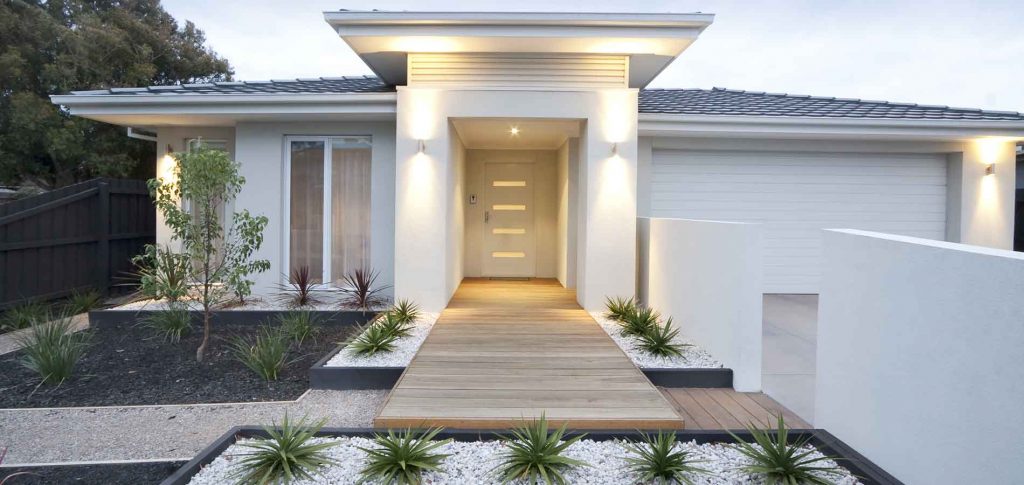Many of us reach a crossroads when we have to decide whether to stay put and renovate or relocate. Whether you’ve welcomed new additions to your family, you’re short on space because you’re now working from home, or your home isn’t ideally suited to your lifestyle, you may be thinking about moving. Before you decide whether to relocate or renovate, it’s essential to weigh up the pros and cons. This guide should come in handy if you’re unsure which path to take.
Renovating your home

Often, people move house because their home no longer works for them, or they have run out of space. If your family has grown or you’ve set up a business at home, you may be wondering if there is an alternative to moving to a larger, more functional property. In some cases, the only option will be to up sticks and move, but there are many ways to solve space issues.
Adjusting the layout
One of the most common complaints people have about older homes is that they are not practical for modern lifestyles. We tend to gravitate towards open-plan living now, and it’s easier for families to come together when everyone can spend time in the same rooms, even if they’re doing different things.
If you have a series of small rooms on the ground floor, for example, you might find that everyone is in different spaces, and you rarely see each other. If you have young children, it can also be difficult to multi-task. If these problems sound familiar, have you thought about renovating your home to create open living spaces?
You could consider knocking walls down or joining rooms together to form large, bright, versatile areas. If you have a kitchen-diner, which opens out onto the back garden, for example, you can cook, work, read, listen to music, socialise and supervise your kids at the same time. You can also enjoy spending more quality time together.
Adding an extension
Another option to think about if space is at a premium is adding an extension. Extensions aren’t cheap, but they usually add substantial value to a property and they can also make homes more saleable. If you extend to the side or the rear of the house, you could create a bigger kitchen-diner, add an office or design a playroom or a den for older kids. For multi-generational living, a downstairs extension could also be used to make space for a ground floor bedroom and bathroom. A double-storey extension would give you scope to add bedrooms, a study or a guest area upstairs.
If you are considering an extension, it’s essential to plan ahead and do your research. Contact reputable, highly-rated building firms, get some quotes, discuss ideas and weigh up different options before you make a decision. Set a budget for the build and look for ways to save.
If you’re a keen amateur DIYer, for example, you could save money by helping out with jobs like clearing rooms, knocking down walls and painting. Cost out every element of the project before you begin and try and set aside a contingency fund.
It’s a good idea to look for a rubbish removal service before you get started to enable you to get rid of anything you don’t want to keep, to reduce mess and to keep the site as tidy as possible while work is ongoing. If you have colleagues, friends or neighbors who have had work done on their houses, ask for recommendations.
Converting your loft or basement

Many of us find that we outgrow our homes as a result of adding extra members of the family or changing the way we use our homes. If you need extra space, and you have an attic or a basement currently lying empty, have you thought about converting these areas? Attic rooms are ideal for workspaces and bedrooms, while basements are great for home gyms, studies, studios, playrooms and games rooms. As with any renovation project, it’s beneficial to explore different ideas and compare quotes before deciding what to do.
Investing in a summer house or garden room

If your home is perfect as it is, but you’re living on top of each other, it may be possible to utilise your outdoor space to free up room indoors. If you work from home, for example, a garden room is an excellent investment. With this option, you can escape the hustle and bustle of the house and enjoy peace and tranquility, while also making the most of a lovely view of your garden. Summer houses provide additional living space in the warmer months, and they’re an idyllic base for indulging hobbies like reading, listening to music, sewing, drawing, writing and doing yoga.
Relocating
If you can’t solve the problem of a lack of space, you’re keen to explore new areas, or you’ve fallen out of love with your current home, relocating may be the best option. Moving can be stressful, but buying a new house and starting afresh can also be incredibly exciting. If you have decided to put your home up for sale, here are some options to consider.
Building your own home

More and more people are choosing to build their own homes. Building a house from scratch is not as straightforward as moving to a property that already exists, but it gives you the opportunity to put your own stamp on your home and create a bespoke design.
Managing a budget is one of the most important tasks when building a new house. With this option, you have to budget for materials and labour, as well as the cost of the land and any additional fees. When you’re drawing up a budget and costing out the renovation, use accurate figures where possible and round up if you don’t have exact numbers. Always remember to factor in taxes and charges. If you find a plot that is suitable and you can afford the project, spend time researching building firms and architects, make sure you understand planning requirements and regulations, and be realistic about how long it will take. Explore all the options, compare quotes and think carefully about plans and ideas before you make any final decisions.
Taking on a doer-upper
Taking on a doer-upper may appeal to you if you’re a creative person or you’re looking to snap up a property in an area that you wouldn’t normally be able to afford. Doing work yourself is often cheaper than buying a house you can move straight into. If you are thinking about tackling a remodel or overseeing a dramatic cosmetic transformation, make sure you have an accurate idea of what is involved, how much it will cost and how long it will take to complete. You’ll need to add the price of purchasing the house to renovation costs, which should include labour, supplies and materials and taxes. Once you’ve worked the finances out, focus on designing the home of your dreams. Take inspiration from places you’ve been and images you’ve seen in magazines and create a clear vision. It’s important that you know exactly what you want to achieve before you start issuing instructions to builders or placing orders for windows, kitchen appliances, bathroom tiles or flooring.
Buying a new house

If you’ve decided to relocate, you may have started browsing listings and looking for properties in your chosen location. During your search, you might have noticed that there are several different types of property available. Buying a new house is a popular option because you can move straight in and you don’t have to worry about doing DIY jobs or fixing issues as soon as you’ve got the keys. New houses don’t always have character or charm, but they often offer a lot of space, and they are designed for modern-day family life. If you buy a house that is presented as a blank canvas, you can take advantage of the opportunity to put your own spin on the decor and add touches to personalise the space. New homes are also easier to maintain and they are more energy-efficient, which will save you money on household bills.
Whatever property you decide to buy, it’s crucial to arrange a second viewing and to visit as many times as you need to before you submit an offer and sign any contracts. Make sure you can afford to move and don’t rush into making a decision. Even if you’re interested in some luxury pads and you feel somewhat intimidated by the real estate agents or your finance company, take your time and make sure you make the right decisions. You will be investing your money and your future in this property so don’t let anyone pressurize you in any way.
If you’re at a crossroads and you’re wondering whether to renovate or relocate, hopefully, this guide will help you decide which option is best for your family. Think carefully about the potential of your current home if you’re short on space or your requirements have changed and explored options such as modifying the layout, extending, or converting an attic room. If you’re not desperate to stay put, or you fancy a change of scenery, it’s worth considering the benefits of moving house. You could buy a new home to move straight into, take on a project or even build your own home. Weigh up the advantages and disadvantages, and take your time to decide which path is best.

















